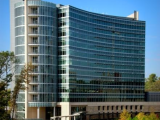Jun 4, 2010 (CIDRAP News) – An article published by the British Medical Journal says three scientists who helped frame World Health Organization (WHO) guidance on pandemic influenza preparedness had consulted for pharmaceutical companies that stood to profit from the WHO guidance and that the WHO did not disclose the scientists' industry ties.
The lengthy report, published online yesterday, says the scientists had declared their industry connections in other publications, but the WHO did not reveal them in its guidance document, WHO Guidelines on the Use of Antivirals and Vaccines During an Influenza Pandemic, issued in 2004.
The report also raises other questions about the WHO's transparency and its management of potential conflicts of interest. In particular, it is critical of the WHO's refusal to reveal the names of the members of its Emergency Committee, which was set up to help guide the WHO response to the H1N1 pandemic, including when to change pandemic alert phases. The secrecy fuels conspiracy theories about issues such as the triggering of vaccine contracts, the article says.
In related developments, a committee of the Parliamentary Assembly of the Council of Europe (PACE) today approved a report that denounced the response of the WHO and European national health agencies to the pandemic as an "unjustified scare" that led to a waste of public resources, according to a Council of Europe press release. PACE's social, health, and family affairs committee approved the report in Paris today, setting the stage for a debate on Jun 24 during PACE's summer session.
The WHO in recent months has repeatedly rejected charges of undue pharmaceutical company influence on its pandemic preparations and response and has said it has appropriate procedures for managing potential conflicts of interest. The agency recently commissioned a group of independent experts to review the WHO response to the pandemic.
WHO advisors named
The BMJ article was written by the journal's features editor, Deborah Cohen, and Philip Carter, a journalist with the London-based Bureau of Investigative Journalism.
The article lists the three experts who helped develop the WHO guidance as Fred Hayden, of the University of Virginia and the Wellcome Trust; Arnold Monto of the University of Michigan, and Karl Nicholson of the University of Leicester, England.
Hayden authored the part of the 2004 guidance document dealing with the use of antivirals in a pandemic, the article says. He told the BMJ that he was being paid by Roche, maker of oseltamivir (Tamiflu), for lectures and consulting when the guidance was produced. The guidance advised governments to consider making plans to ensure they would have a supply of antivirals in the event of a pandemic.
The article says Monto wrote an annex to the WHO guidance that covered vaccine usage in a pandemic. At the time, he was declaring receiving honorariums, consulting fees, and/or research support form three companies, Roche, GlaxoSmithKline (GSK), and ViroPharma, according to the report.
Nicholson wrote another annex, "Pandemic Influenza," to the WHO guidance, the article says. According to declarations he made in BMJ and The Lancet in 2003, he had received travel funding and honoraria from Roche and GSK for consulting and for speaking at medical conferences.
All three experts told the BMJ that the WHO required experts attending agency meetings to complete declarations of interest. But the article adds, "WHO itself did not publicly disclose any of these conflicts of interest when it published the 2004 guidance. It is not known whether information about these conflicts of interest was relayed privately to governments around the world when they were considering the advice contained in the guidelines."
The BMJ writers say they asked the WHO for the conflict-of-interest declarations for the meeting that launched the development of the 2004 guidance document. The request was turned down by WHO Director-General Margaret Chan.
Since 2004, according to the BMJ, the WHO has produced additional pandemic guidance prepared by experts who had received payments from manufacturers of antivirals and vaccines. These activities included a global preparedness plan in 2005 and an interim Pandemic Influenza Task Force in 2006.
The article also contends that the WHO is inconsistent in its approach to transparency and its management of possible conflicts of interest. While it has kept secret the names of its Emergency Committee members, the names of its Strategic Advisory Group of Experts (SAGE) on Immunization are public knowledge, and the agency publishes summaries of their declarations of interest.
Following a Jun 1 meeting of the Emergency Committee, the WHO yesterday announced it would maintain the current phase 6 pandemic alert for the time being. In the announcement, Chan said the agency guards the names of the committee members "to protect the integrity and independence of the members while doing this crucial work," but promised to reveal them eventually.
The agency told the BMJ it protects the names of the Emergency Committee members to shield them from being influenced or targeted by industry.
The BMJ article also raises questions about the quality and disclosure of data that led to the licensing of oseltamivir and zanamavir (Relenza) in Europe and the United States, a topic that the journal covered in a review in December. At that time the journal said it couldn't get access to manufacturer data on the two drugs. Since then, staff members of the US Food and Drug Administration and the European Medicines Agency have said the two agencies struggled with the "paucity" of data on zanamivir and oseltamivir, respectively, during the licensing process, the article says.
Call for transparency supported
Steven Miles, MD, a bioethicist at the University of Minnesota Medical School in Minneapolis, said the BMJ article shows that the WHO needs to be more transparent about its advisors' potential conflicts of interest and the data it relies on.
"The bottom line is that the WHO is looked to for health policy by the world community, including many countries which do not have the capacity to evaluate the health policy and technical questions that they turn to the WHO for guidance on," he said.
"For this reason the WHO has to have the strongest possible standard both with regard to managing conflicts of interest and transparency regarding the origins of its recommendations," he added. "That includes disclosure not only of conflicts of interest bearing on its experts, but also transparency regarding the data they're relying on.
"In this circumstance it appears that neither was present—that there was no disclosure of industry ties of experts, but also that at least some of the data they were relying on was from industry-funded studies which were under proprietary control."
Miles said the fact that the three experts' connections with industry were known because of their declarations in other publications doesn't excuse the WHO from listing those ties in its guidance document.
'It's not enough if you disclose in one location if you don't disclose in all the locations where you publish," he said. Also, many of the journals in which the experts publish are not open-source journals, so many of the users of WHO guidelines, such as health officials in countries like Thailand or Nepal, would not have access to the publications in which disclosures were made, he added.
In defense of the WHO
The WHO was defended today by Michael T. Osterholm, PhD, MPH, director of the University of Minnesota Center for Infectious Disease Research and Policy, which publishes CIDRAP News.
Osterholm said the WHO needs to rely on leading experts on issues such as antivirals, and such experts will often have some ties to industry. He also said the BMJ writers presented no evidence that the industry connections of its advisors led to any inappropriate actions or recommendations by the WHO.
"Over the years there's been a small group of researchers who have concentrated in antiviral treatment and prevention for flu. Why should it be surprising that they may have worked with drug companies on these drugs?" he said. "To exclude them would be to exclude the universe of expertise."
"Today it's very easy to do science witch hunts or character assassination by inference. There's no evidence whatever that any of these individuals acted improperly, nor did WHO," Osterholm added.
If the WHO wanted authoritative information on the use of antivirals, he said, "I can't think of anybody in the world who would know more about it" than Hayden. "Is there any evidence that Fred or anyone like him recommended drugs that benefited him financially?"
Osterholm said he is very supportive of transparency and disclosure, while asserting that the WHO has systems in place to prevent conflicts of interest from distorting recommendations or votes. Ultimately, he said, the relevant decisions were made by the WHO itself, not by its expert advisors.
Council of Europe report
The PACE committee report denouncing the pandemic response by the WHO and European governments was produced by committee member Paul Flynn, a Labour member of the British parliament.
The Council of Europe, a group separate from the European Union, works on issues such as civil rights, economics, and democracy. The group was established after World War II and is made up of elected officials from 47 nations.
The committee's report charges that there were "grave shortcomings" in the transparency of decision making during the pandemic, which they say raises questions about pharmaceutical industry influence. They questioned why the WHO emergency group and European advisory groups didn't publicize the names and conflict-of-interest declarations of their members.
Fiona Godlee, editor-in-chief of the BMJ, appeared before the committee today to detail the journal's report that scientists with drug industry ties helped WHO develop guidelines on flu vaccine stockpiling.
The PACE committee's report recommends several measures designed to improve transparency and safeguard against what it says is undue influence. The group also calls for a public fund to support independent research and expert advice, possibly funded by the pharmaceutical industry, and closer collaboration with the media to avoid sensationalistic coverage of public health events.
Before and during a PACE committee hearing in January, the WHO defended itself from the accusations. Keiji Fukuda, MD, special advisor on pandemic influenza to the WHO director-general, said the new virus that quickly swept the globe required an unprecedented global cooperation from wide-ranging groups, including pharmaceutical companies.
He said the International Health Regulations (IHR) provide an orderly framework for assessing and declaring a pandemic.
A pharmaceutical company representative also rejected the committee's charges at its hearing in January. Dr Luc Hessel, chairman of the European Vaccine Manufacturers Public Health Policy and Advocacy working group, said vaccine companies delivered a safe, effective vaccine in a timely manner, as countries asked them to do, based on the best information they had at the time.
He said many governments had preexisting contracts for pandemic vaccine to avoid difficult negotiations and ease the response during a public health emergency. Hessel countered that vaccine companies have shouldered financial risks in advance of the pandemic by expanding production capacity.
Several top health officials have defended government and WHO actions in the wake of the PACE committee's criticisms. For example, British Heath Secretary Andy Burnham told the House of Commons in January that he would not apologize for preparing to protect the public during a pandemic, and Australia's chief medical officer, Jim Bishop, in a media report called some of the groups claims "historically and medically inaccurate" and said the WHO made its pandemic decisions based on cases and deaths in Mexico and the United States, not on pharmaceutical industry influence.
At the recent World Health Assembly, which wrapped up its work on May 21, representatives from several nations, including France, India, and the United States, also defended the WHO's pandemic actions, according to media reports. French health minister Roselyne Bachelot called criticism of the WHO's response unfair.
"The vaccine, which was the answer to a real danger, turned into a source of risk in the collective mind," Bachelot said, according to Agence France-Presse. "The effects of this smear campaign are potentially devastating."
Cohen D, Carter P. Conflicts of interest: WHO and the pandemic flu "conspiracies." BMJ 2010;340 (published online Jun 3) [Full text]
See also:
Jun 4 PACE statement
Jan 14 CIDRAP News story "WHO, vaccine group deny pandemic scare charges"
Jan 26 CIDRAP News story "European hearing airs WHO pandemic response, critics' charges"
Jun 3 WHO emergency committee statement


















